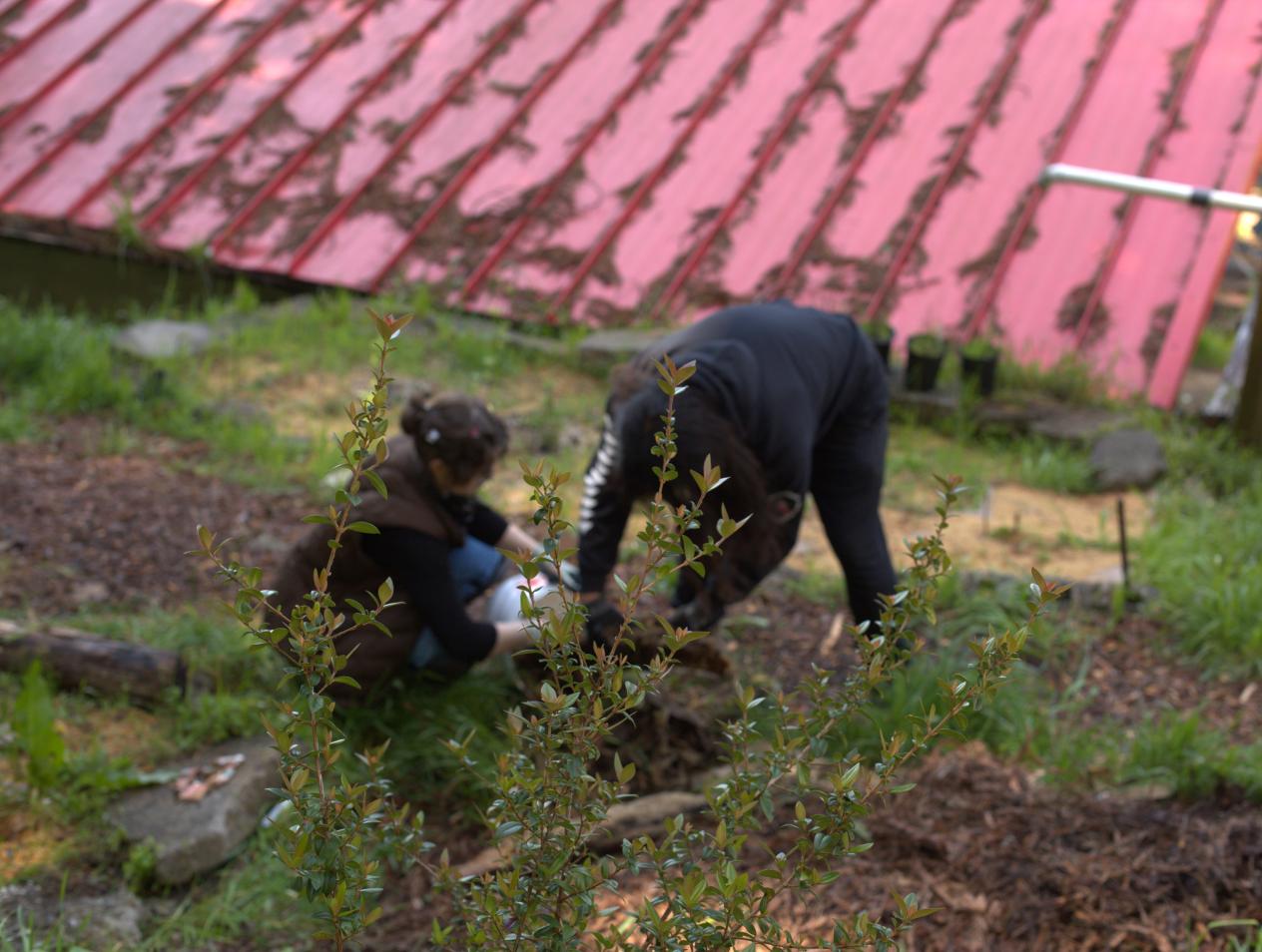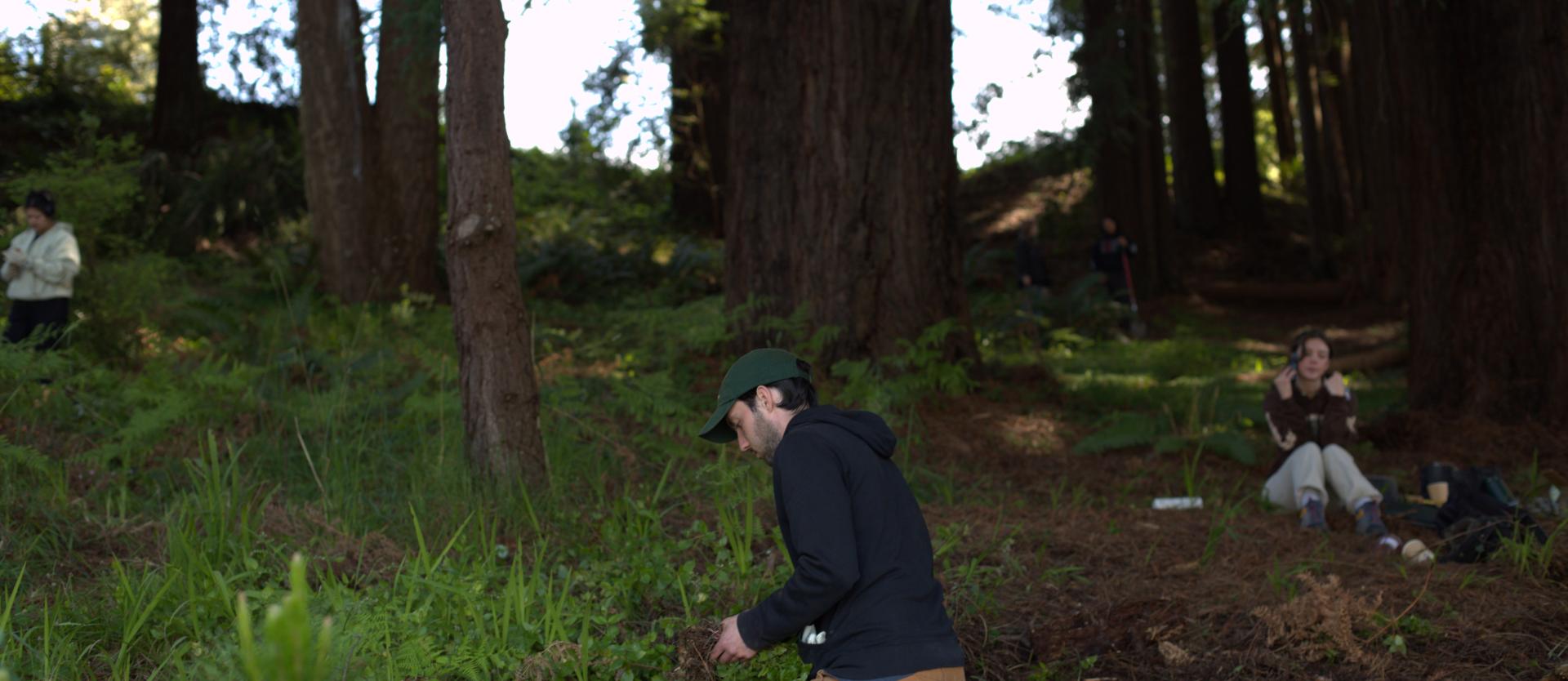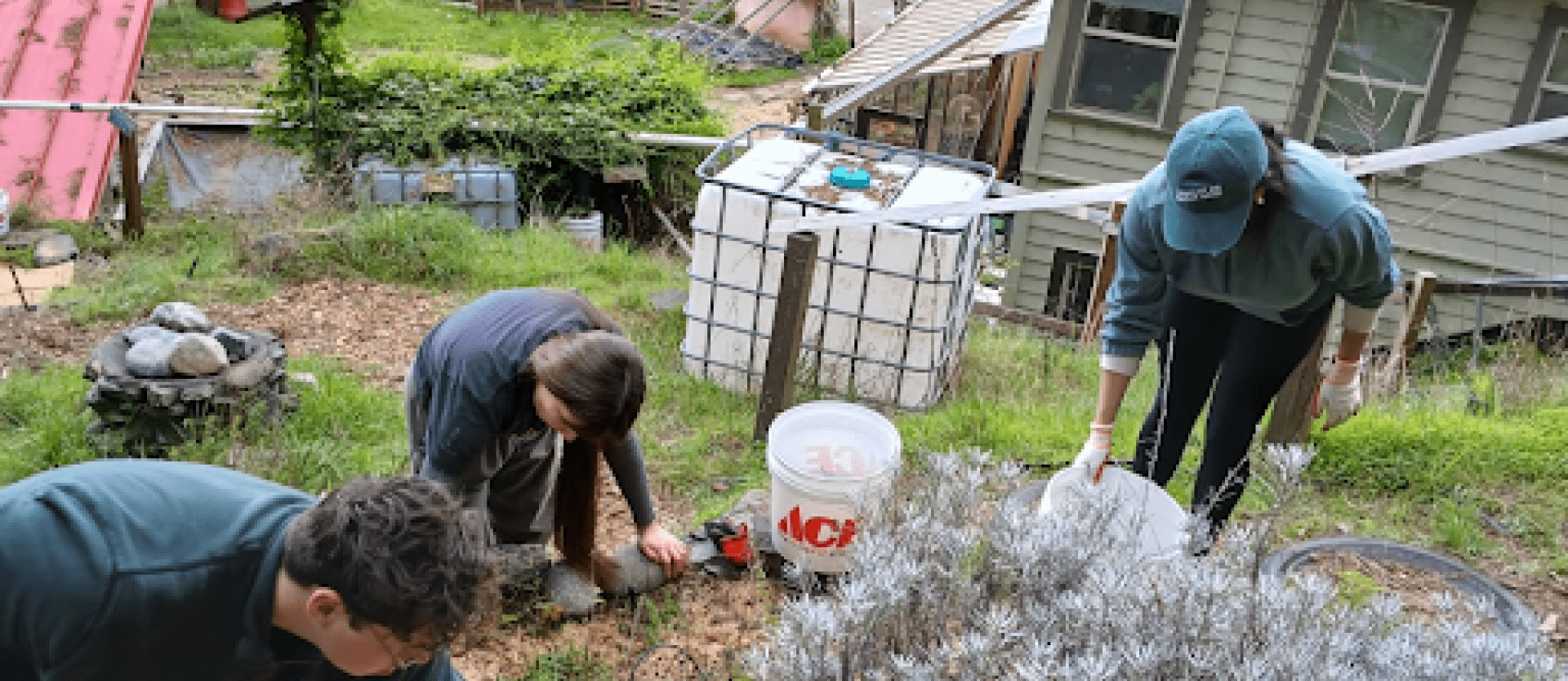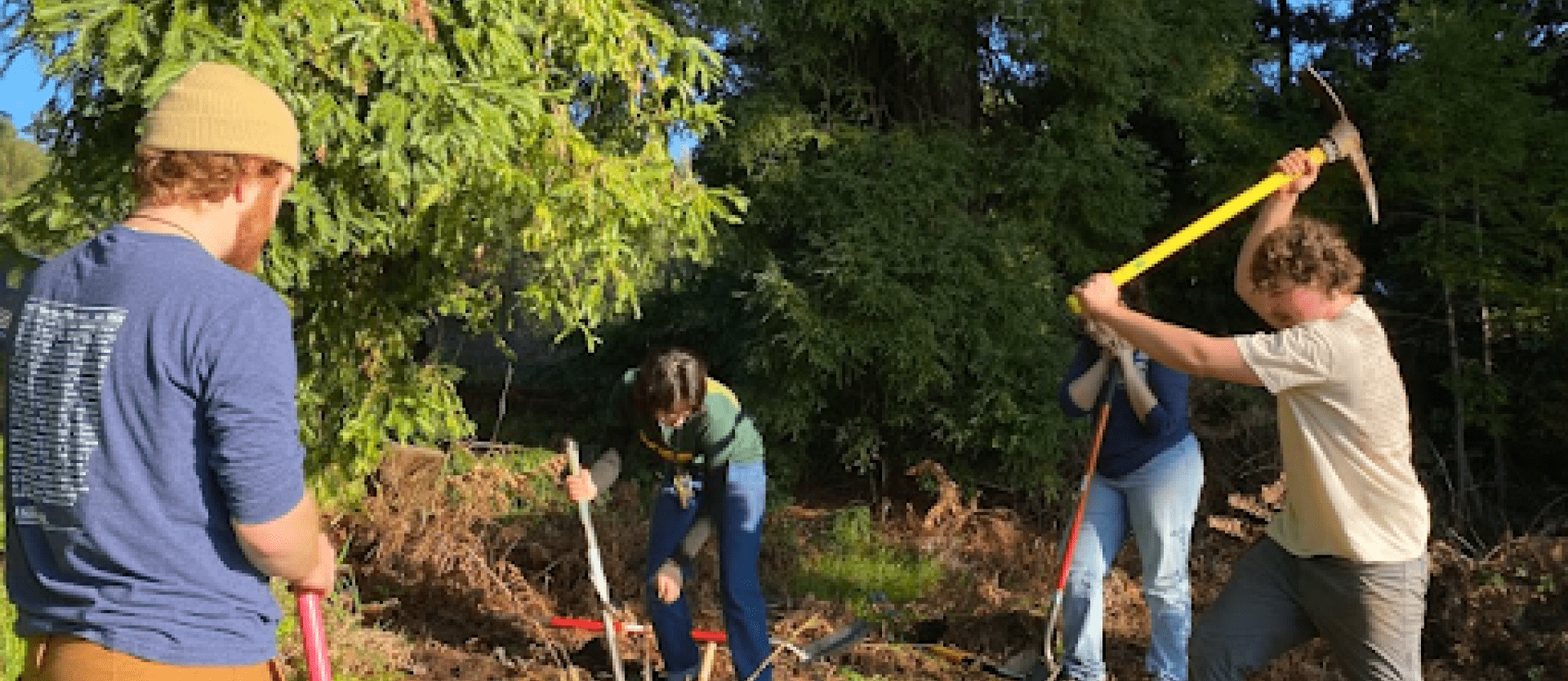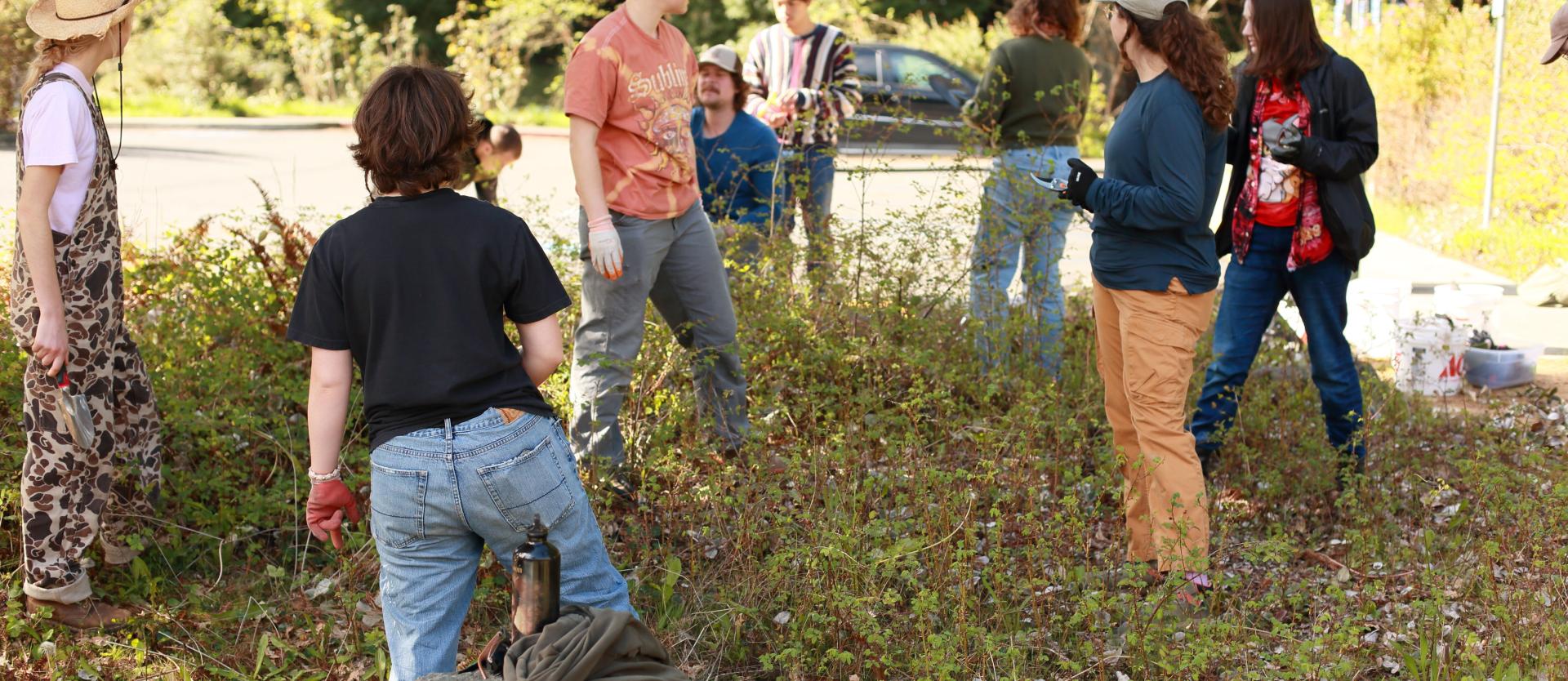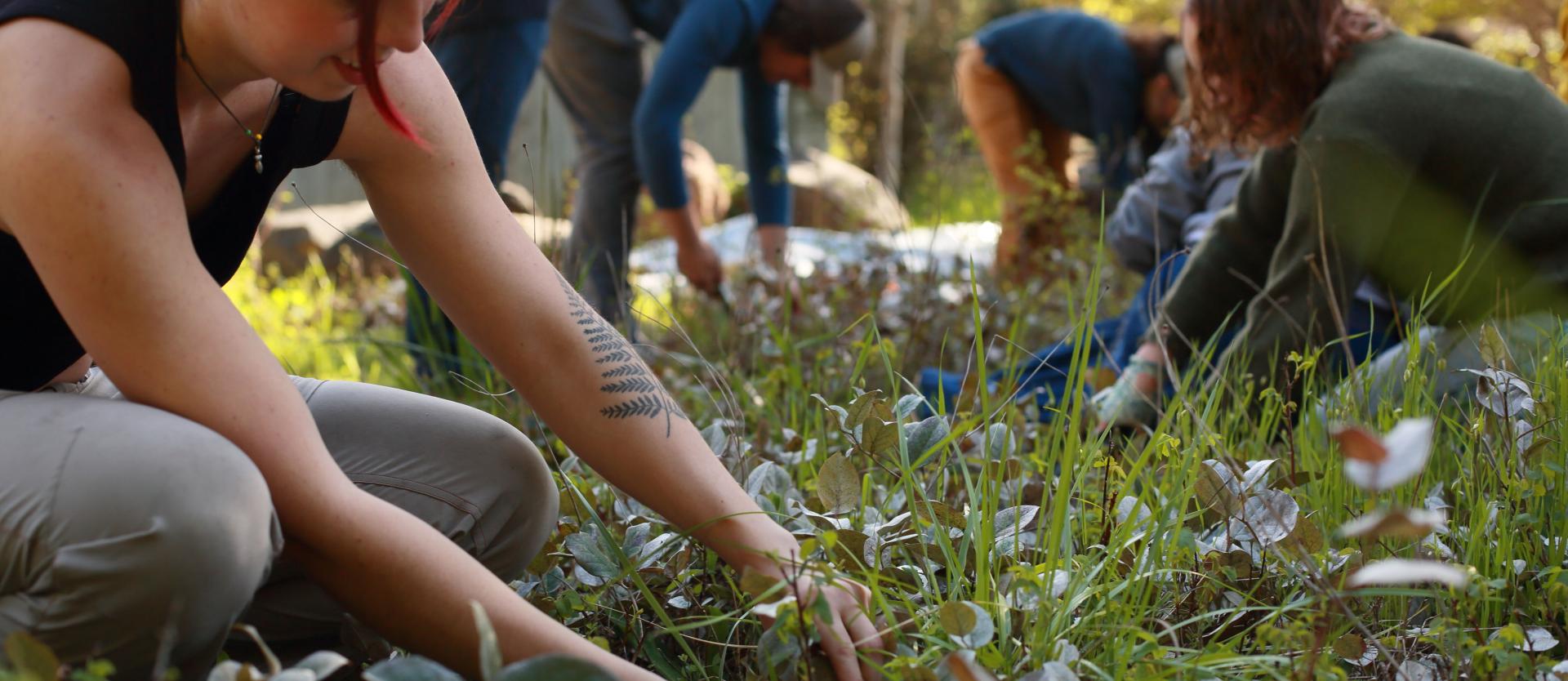Breadcrumb
Wiyot Plaza & Indigenous Garden
Wiyot Plaza serves as the Rou Dalaguur Food Sovereignty Lab and Traditional Ecological Knowledges Institute (FSL) dedicated exterior space for land-based education and restoration. Wiyot Plaza features a salmon cooking pit behind Cal Poly Humboldt’s Native Forum, an acorn processing center, a Native Plant Landscape, and the FSL Indigenous garden. The space is co-managed by the FSL and Cal Poly Humboldt, as part of a co-management agreement signed with the university in 2022.
Students, staff, and community members engage in the Wiyot Plaza Experiential Learning Space in landscape connection and care, supporting the future educational programs in the space and the generational health of the landscape- including the resurgence of the landscape to be able to support regional food sovereignty and access to traditional foods. Through Wiyot Plaza, the FSL offers tours, events, and volunteer opportunities to students, staff, and community members. This includes hosting youth and classes from K-12 and higher education, organizations, institutions, and more! To get involved with Wiyot Plaza, please reach out to nasfsl@humboldt.edu
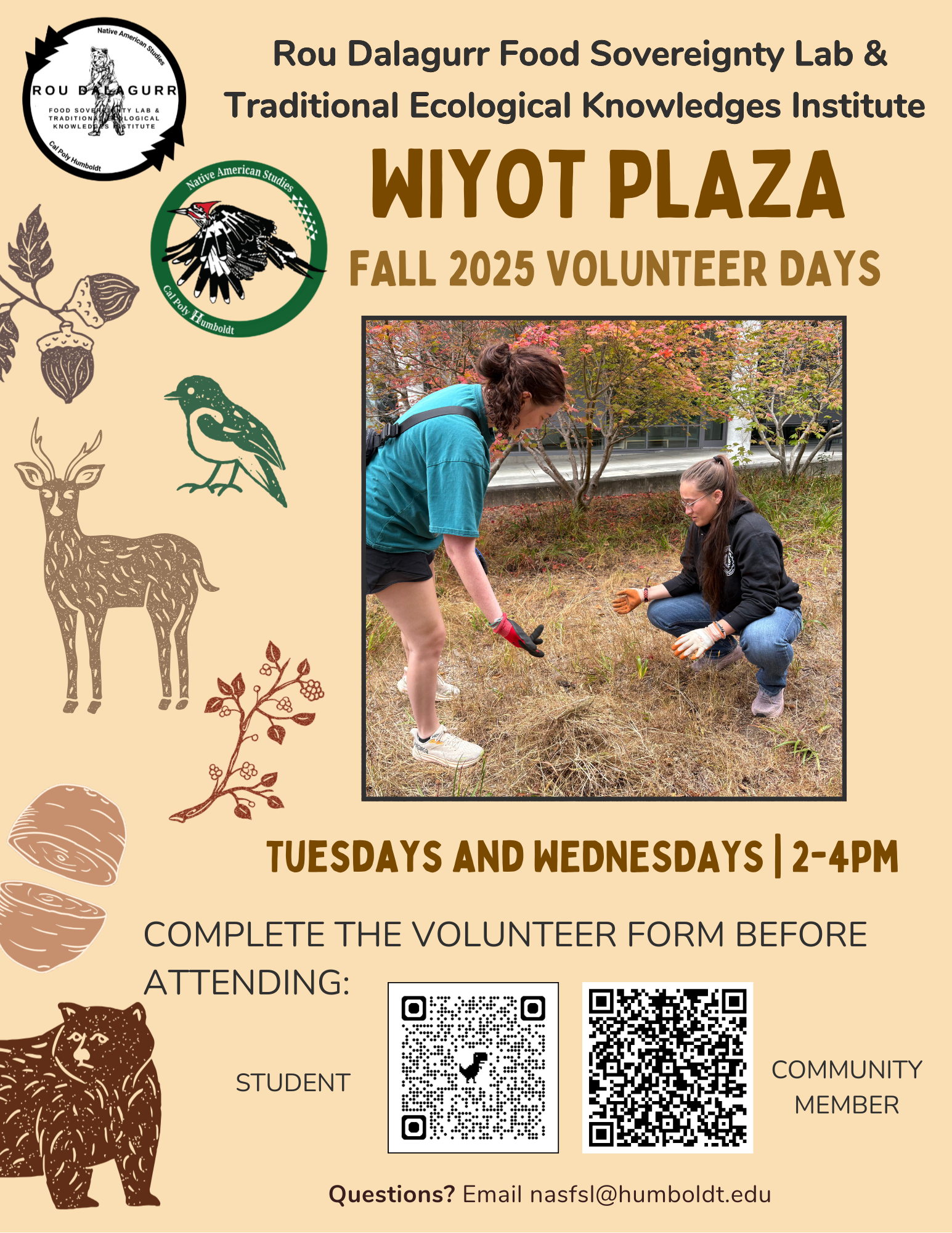
Garden Volunteering
Wiyot Plaza- Indigenous Garden Days of Service
Every Tuesdays and Wednesdays from 2-4pm (pending weather)
Complete the VOLUNTEER FORM before attending
FSL Indigenous Garden Map/Location
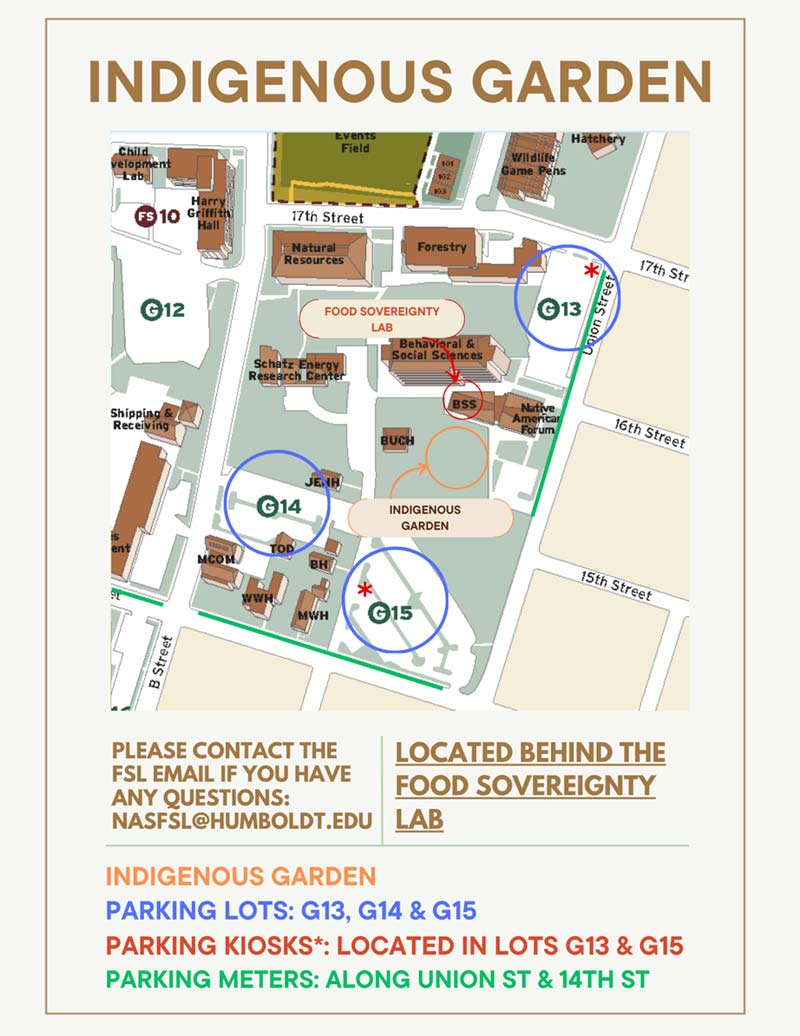
Located Behind The Food Sovereignty Lab
Please Contact The FSL Email If You Have Any Questions: Nasfsl@Humboldt.Edu
Indigenous Garden
Parking Lots: G13, G14 & G15
Parking Kiosks*: Located In Lots G13 & G15
Parking Meters: Along Union St & 14th St
About Wiyot Plaza
- In July 2022, the FSL received an exterior space allocation at Cal Poly Humboldt, which has since been officially named ‘Wiyot Plaza’. The Wiyot Plaza arose thanks to the actions and resilience of the Lab’s faculty, staff, students, community, and partners. Since the envisioning of the Food Sovereignty Lab, a Native Plant Landscape and exterior space has been conceived as a critical element to our Institute. Wiyot Plaza surrounds the Behavioral and Social Sciences Building (BSS), and extends down to General Parking Lot 15 on Cal Poly Humboldt’s campus- this includes open areas and a redwood woodland. We are so grateful for the continuing and vocal support of the Wiyot Tribe to the Food Sovereignty Lab, including their representation on the Steering Committee and actions such as the Wiyot Tribe Natural Resources Department’s letter of support submitted to USFAC regarding the request for an external space allocation. It is the driving goal of the Lab to be a space of collaboration and mutual support between Cal Poly Humboldt and the tribal community- the exterior space allocation enables us to further realize this goal.
- Originally, the BSS building was designed to include campus and community-facing spaces for basket weaving, regalia making, cooking using traditional methods, and traditional arts. The FSL chose the location of the BSS 168 in consideration that the BSS building was originally designed to honor Native peoples and create space for Indigenous programs on campus. We envision a continuity of Indigenous space near the Native Forum, Goudi'ni Gallery and NAS Department, creating the 'Wiyot Plaza'. This space integrates educational opportunities outside of the BSS building as part of a Native Plant Landscape that is connected to and cared for by the Food Sovereignty Lab- an extension of the classroom space focused on learning Indigenous sciences through land-based pedagogies. This includes the revitalization of the area originally designated to be a salmon cooking pit to become an acorn processing area, the establishment of a salmon cooking pit behind the Native American Forum, and the design of a Native Plant Landscape that incorporates Native artwork patterns and local Native Languages, and the Indigenous Garden, which will include an ADA compliant 'Elder Garden', greenhouse, and shed constructed to mirror a traditional Wiyot Plankhouse. The Food Sovereignty Lab’s exterior space has the core objectives of supporting food sovereignty and community engagement with traditional foods and management practices. As the FSL enters into relationship with this landscape, we are building stewardship and Rou Dalagurr in a generational lens. Read more about our vision for the Outdoor Classroom in the 'Exterior Space Report'! This vision will continue to be shaped by community feedback and collaboration as we build and implement our Phased Plan.
- To define the relationships between campus stakeholding entities and the FSL, our staff, and members of the Steering Committee have worked with the Landscape and Tree Subcommittee to USFAC to develop a ‘Shared Maintenance and Co-Management Agreement’ (Read it here!). This agreement inscribes our shared commitments to caring for the space, entering into a relationship with the landscape, it’s more-than-human inhabitants, and between partners, to return tribal community access and sovereignty to landscape. Of emphasis in this agreement is collaboration and insight of tribal knowledges and cultural stewardship practices, facilitated primarily through the Steering Committee of the FSL.
- This co-managed agreement is the first in CSU and UC history! We hope that this agreement serves as a forward-looking model for other higher institutions looking to collaborate with Indigenous scholars and communities on similar endeavors, increasing access of Indigenous community to their aboriginal territories and landscapes, and supporting Indigenous self-determination and sovereignty over those territories and landscapes through such co-management agreements.
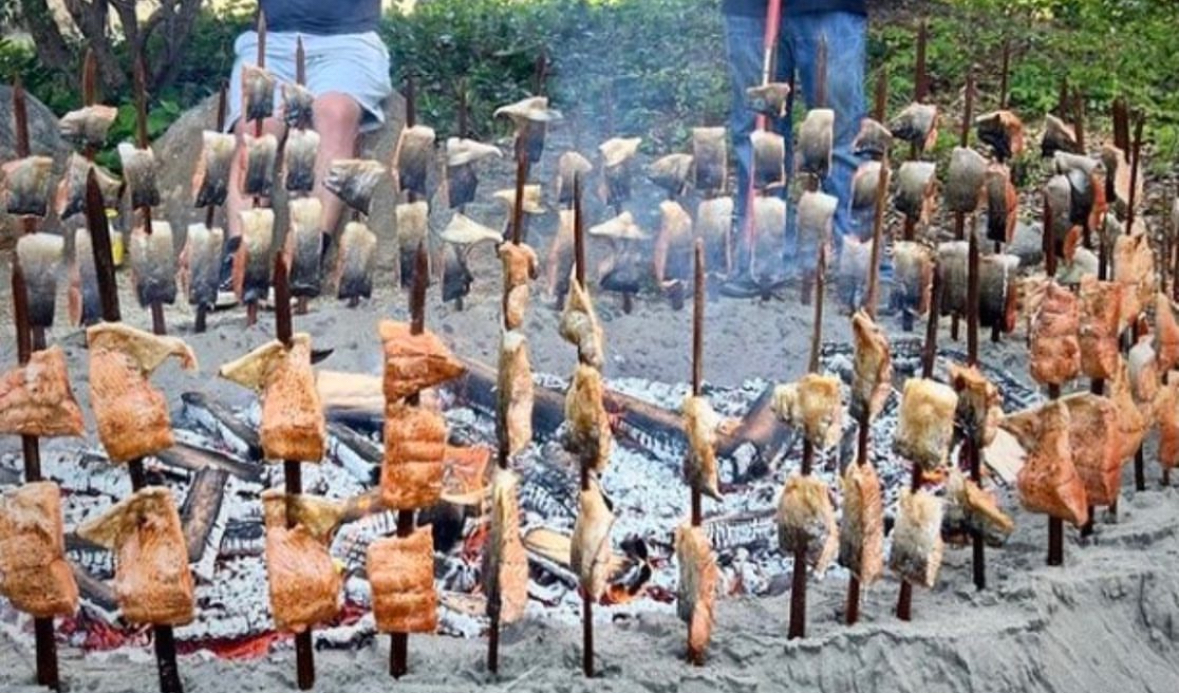
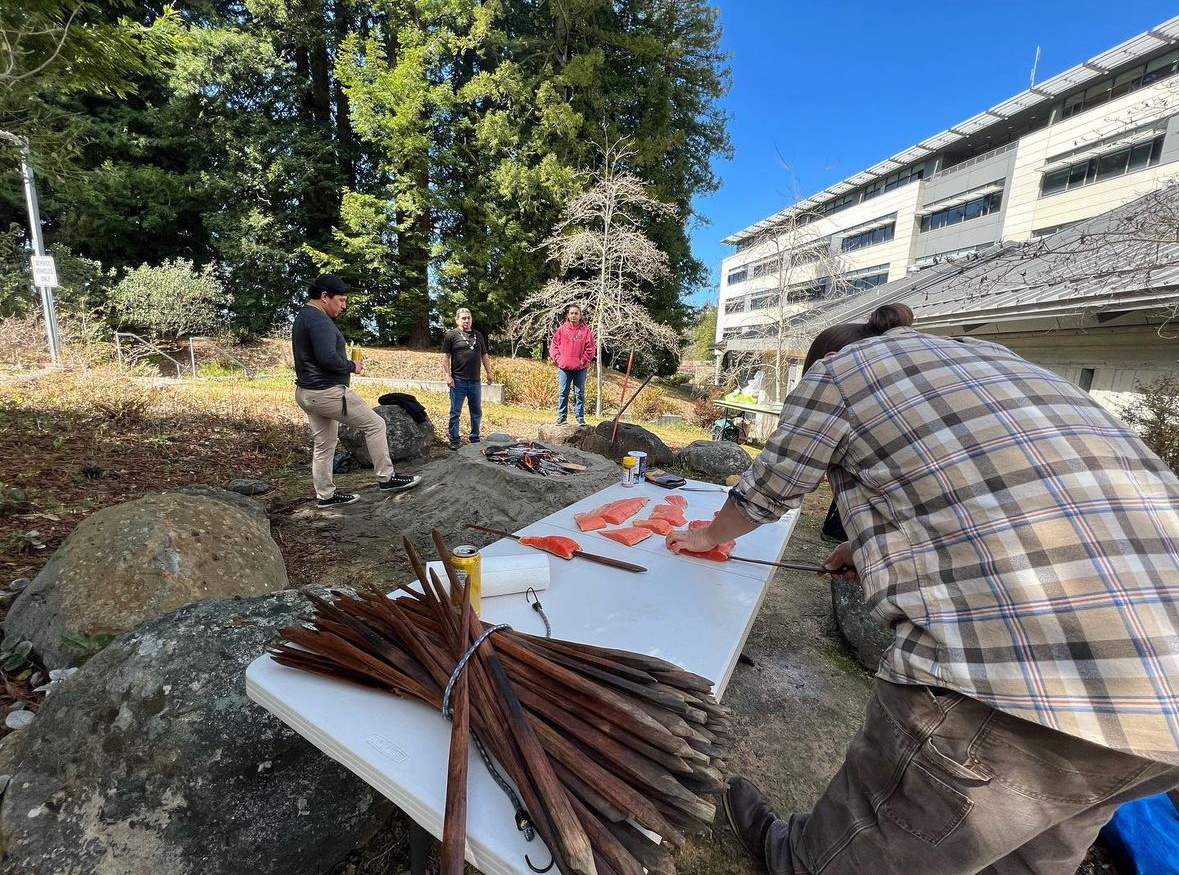
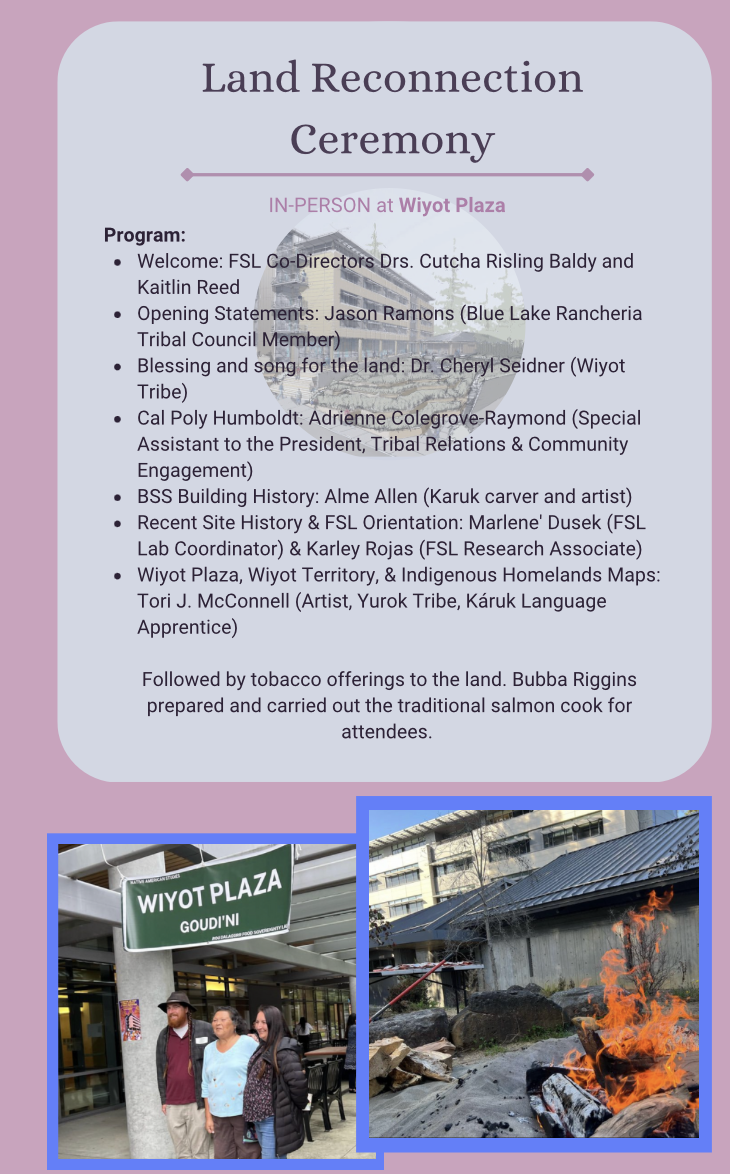
Phase 1 & 2:
- The Food Sovereignty Lab is moving through Phase 1: Reconnection of our long-term relationship building and restoration planning within Wiyot Plaza. To build this space, and to approach Phase 2: Restoration while ensuring well being of both human and more-than-human relatives in the landscape, we are seeking comprehensive environmental site assessment and suite of testing. The submission of soil, water, and plant samples for testing will inform on the concentration and composition of any pollutants, pathogens, and toxins, and their gradation and patterns in the landscape; this will enable planning for strategic mitigation and landscape restoration. This includes testing of the water and soil in and around the experimental greenhouse space on campus, which is also a facility used by the Food Sovereignty Lab. See our site testing report for our progress regarding site testing, including estimates for comprehensive baseline soil, water, and plant testing, a site history, and environmental site assessment. As we work to establish site testing pathways for Wiyot Plaza, we aim to concurrently establish pathways and coalitions to make site testing more accessible to our community.
- We are also compiling an Indigenized phase 1 environmental site assessment, establishing a history of the landscape through archival methods, GIS mapping, and oral stories. Please see the Place-Based Learning Practices project for more information.
- With successful site testing, FSL orientation to Wiyot Plaza can move to planning for Phase 2: Restoration, which includes bringing fire back to the landscape through cultural burning, and engaging in Indigenous science-based restoration planning and landscape remediation. We also look to begin installations throughout Wiyot Plaza, including signage, Indigenous artwork, and larger infrastructure.
- We are seeking funding for site testing, if you would like to donate, click here. Current Site Testing Estimate: $45,965
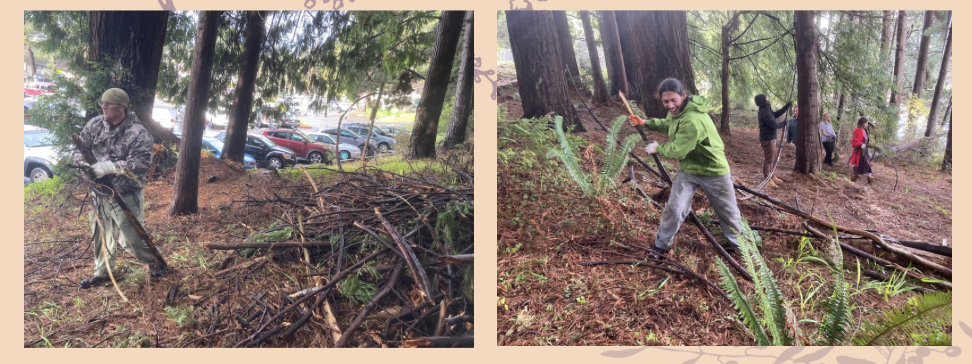
Within Phase 1, one example is Dr. Daniel Lipe's NAS 332: Environmental Justice Class in 2023, which engaged in discussions in this space, grounded in land-based learning pedagogies, around the return of cultural fire to the land, as well as the preparative steps to reach this objective. Students in NAS 332, under the guidance of the FSL Research Associate, engaged in fuel load aggregation on the landscape, actively increasing the accessibility and engagement capacity of the Experiential Learning Space. This culminated in the rental of a trailer, and the removal of over 1.5 tons of accumulated fuels from the landscape in May of 2023 by FSL Staff and volunteers.
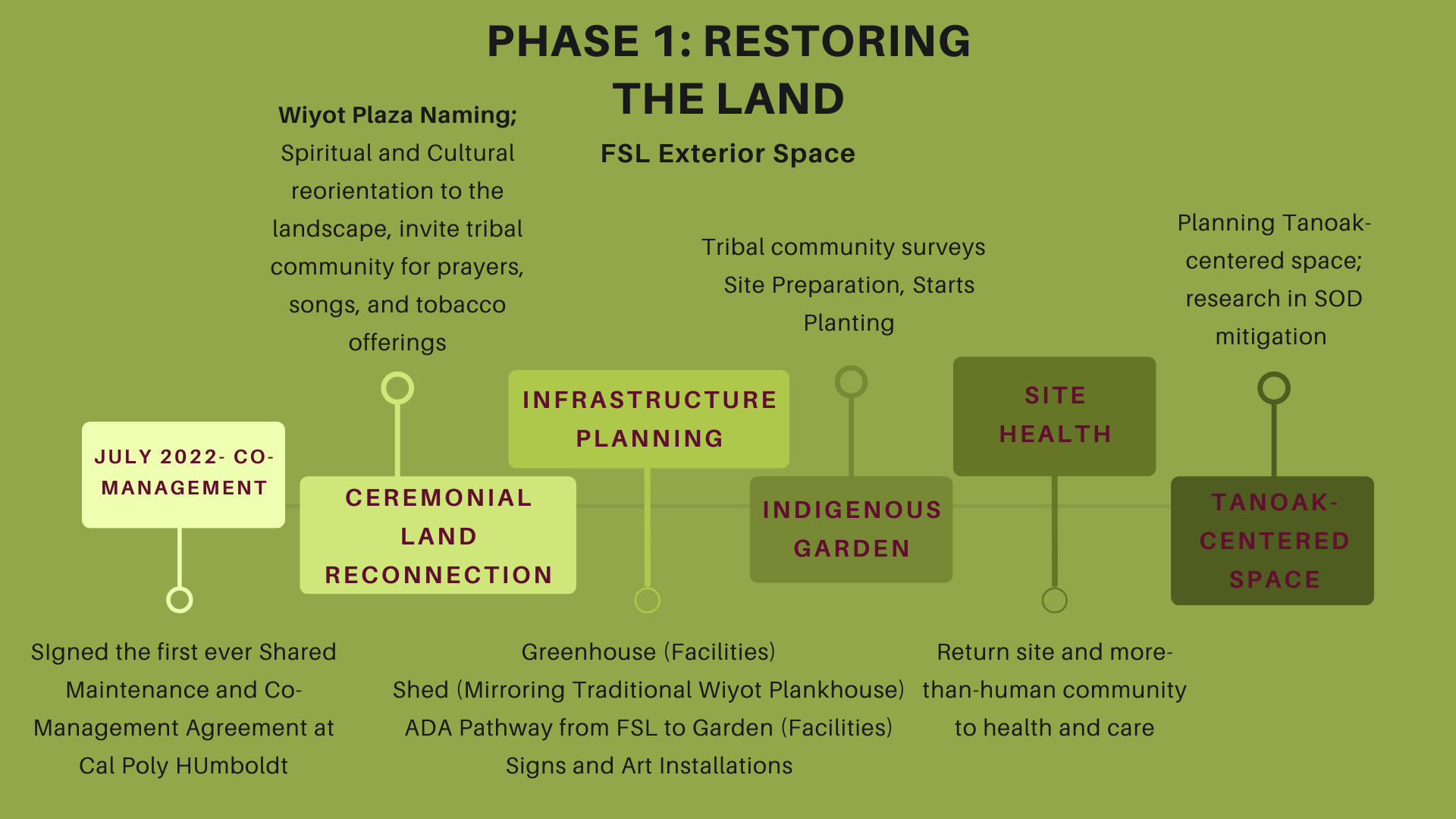
Phase 1: Restoring the Land
FSL Exterior Space
- July 2022- Co-Managment
- Signed the first ever Shared Maintenance and Co-Management Agreement at Cal Poly Humboldt
- Ceremonial Land Reconnection
- Wiyot Plaza Naming; Spiritual and Cultural reorientation to the landscape, invite tribal community for prayers, songs, and tobacco offerings
- Infrastructure Planning
- Greenhouse (Facilities), Shed (Mirroring Traditional Wiyot Plankhouse), ADA Pathway from FSL to Garden (Facilities), Signs and Art Installations
- Indigenous Garden
- Tribal community surveys, Site preparation, Starts planting
- Site Health
- Return site to and more-than-human community to health and care
- Tanoak-Centered Space
- Planning Tanoak-centered space; research in SOD mitigation
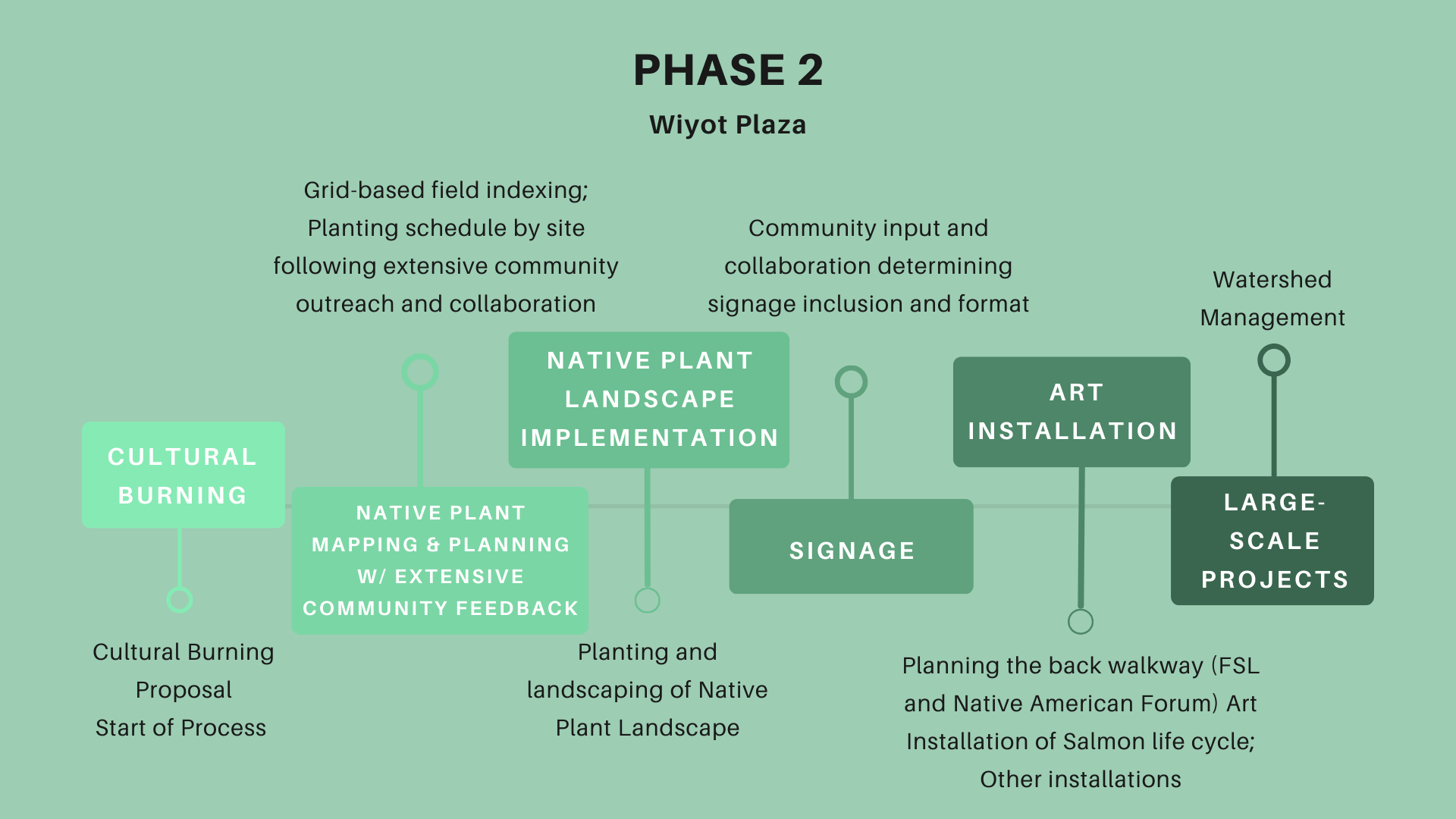
Phase 2:
Wiyot Plaza
- Cultural Burning
- Cultural Burning Proposal, Start of Process
- Native Plant Mapping & Planning with Extensive Community Feedback
- Grid-based field indexing; Planting schedule by site following extensive community outreach and collaboration
- Native Plant Landscape Implementation
- Planting and landscaping Native Plant Landscape
- Signage
- Community input and collaboration determining signage inclusion and format
- Art Installation
- Planning the back walkway (FSL and Native American Forum) Art Installation of Salmon life cycle; Other installations
- Large-scale Projects
- Watershed Management
- Image
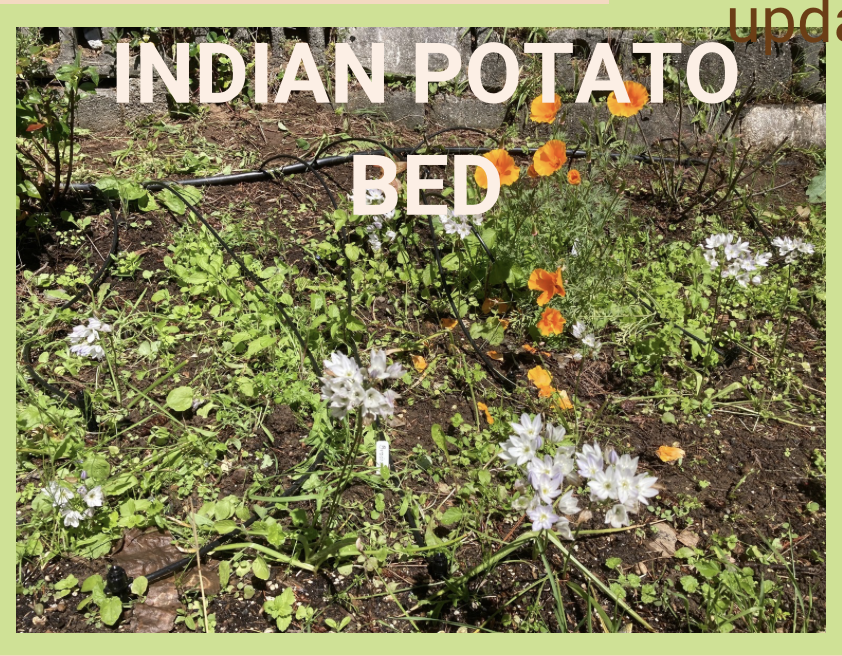
- The Campus Center for Appropriate Technology (CCAT) donated the uphill part of their exterior space to the Food Sovereignty Lab, which has become the FSL Indigenous Garden. The soil pH of the beds is averaged at 6.3, is dominantly clay, and is rich in organic matter. The garden is partially shaded during most of the day. Planting in the beds (has been and will continue to be) decided by tribal community stakeholders and the FSL Steering Committee. In 2022, following a community survey, the information was analyzed and collated with previous input from community members, which generated an initial plan for implementation of the Indigenous Garden. The feedback from the surveys suggested that the Garden will have a primary focus on Native plants, with additional plantings of non-native (to the North California Coast bioregion) plants. Some of these non-natives can be food producers/crops, while others can be massed with native plants that share traditional uses and niche.
- Planting plans continue to be formed based on community feedback, including In consideration of the unknown site history and the possible presence of pollutants, toxins, and pathogens in the space that could impact the safety of our plant relatives for human consumption and interaction, in the Spring '23 growing season we focused our planting in three raised beds. These beds were built using reclaimed redwood from the deconstructed CCAT yurt, raised off of the soil surface, and filled with soil donated by Royal Gold.
- The planting plan implemented in 2023 included the dedication of one raised bed to vine tea, one to massed Indian potatoes, and a dedication to medicinal, herb, and grain plants in the third bed. In 2024, we achieved the installation of a shed at the top of the garden.
Currently in 2025, garden beds have been dedicated to a native plant bed, non-native veggie bed, and vine tea bed. Through the support of CCAT’s community garden, the FSL has a new bed in the sun where native Palestinian squash is planted. Work continues on the herb bed, Indian potato bed, and soon to be flower bed. Much more to come!
Image
- We look forward to the day we can safely work with those relatives as food and medicine. These in-ground beds also serve in augmentation of our growing seed bank. Looking forward, we will be constructing an ADA compliant path which will allow the top two beds of the Indigenous garden to be accessible, which will be constructed into raised beds, creating an 'Elder Garden' corner of the indigenous Garden. We will also look to construct a plant propagation area.






